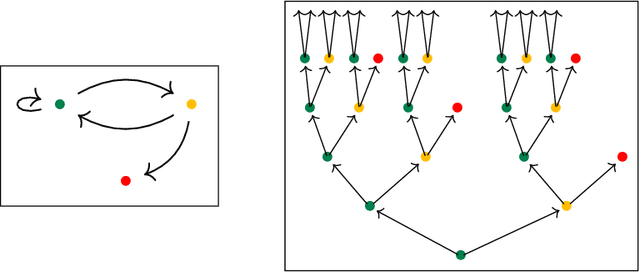Learners' languages
Paper and Code
Mar 01, 2021
In "Backprop as functor", the authors show that the fundamental elements of deep learning -- gradient descent and backpropagation -- can be conceptualized as a strong monoidal functor $\mathbf{Para}(\mathbf{Euc})\to\mathbf{Learn}$ from the category of parameterized Euclidean spaces to that of learners, a category developed explicitly to capture parameter update and backpropagation. It was soon realized that there is an isomorphism $\mathbf{Learn}\cong\mathbf{Para}(\mathbf{SLens})$, where $\mathbf{SLens}$ is the symmetric monoidal category of simple lenses as used in functional programming. In this note, we observe that $\mathbf{SLens}$ is a full subcategory of $\mathbf{Poly}$, the category of polynomial functors in one variable, via the functor $A\mapsto Ay^A$. Using the fact that $(\mathbf{Poly},\otimes)$ is monoidal closed, we show that a map $A\to B$ in $\mathbf{Para}(\mathbf{SLens})$ has a natural interpretation in terms of dynamical systems (more precisely, generalized Moore machines) whose interface is the internal-hom type $[Ay^A,By^B]$. Finally, we review the fact that the category $p\text{-}\mathbf{Coalg}$ of dynamical systems on any $p\in\mathbf{Poly}$ forms a topos, and consider the logical propositions that can be stated in its internal language. We give gradient descent as an example, and we conclude by discussing some directions for future work.
 Add to Chrome
Add to Chrome Add to Firefox
Add to Firefox Add to Edge
Add to Edge